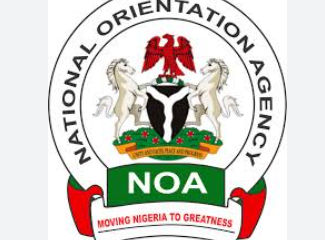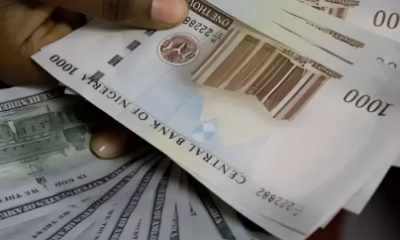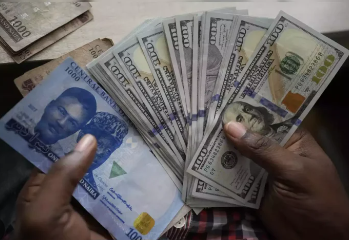The Federal Government is desperately reaching out to foreign investors to support Nigeria’s weakened currency.
The Naira in recent weeks has not been stable despite the apex bank’s weekly intervention. At the moment, it traded at N358.6 to the Dollar at the parallel market in Lagos, while the Pound sterling and the Euro closed at N445 and N396, respectively.
At the Bureau De Change (BDC) segment, the Naira was sold at N358.6, while the pound sterling and the euro closed at N445 and N396, respectively.
Trading at the investors’ window saw the Naira closing at N363.32 as market turnover stood at 477.04 million dollars, while it traded at N306.95 to the dollar at the official CBN window.
In a report by the Central Bank of Nigeria, Godwin Emefiele, said to have met with unnamed professional asset management firms (fund managers) in London, United Kingdom last week.
The meeting between Emefiele and the foreign investors reportedly centered on the stability of naira. According to the report, the authorities want to boost liquidity in the forex market and luring investors back into the local currency will help to achieve this. It was disclosed that Emefiele told investors that currency stability would continue.
Emefiele, who was reappointed in May 2019 after his tenure ended, was recently directed by President Buhari to ban forex for food importation. According to the President, the directive was given to encourage local agricultural production and attain full food security in Nigeria.
The decision to stop provision of forex for food importation, however, didn’t go well with some stakeholders like Nigeria Employers Consultative Association (NECA), Lagos Chamber of Commerce and Industry (LCCI) and the Centre for Social Justice (CSJ).
Emefiele affirmed the forex directive, disclosing that the President’s action was in line with the foreign exchange policy of CBN management that started as far back as 2016. He said the country’s foreign reserves should not be wasted on importing food items, adding that the criticisms received were unfair and unfortunate because the president’s speech had been largely misrepresented.
He, however, stated that the CBN would aggressively drive the policy as more items would be banned to restrict food importers from accessing foreign exchange from both the CBN source and the Nigerian banking industry.

 Entertainment6 days ago
Entertainment6 days ago
 Health1 week ago
Health1 week ago
 Health4 days ago
Health4 days ago
 Football1 week ago
Football1 week ago
 Football1 week ago
Football1 week ago
 Crime5 days ago
Crime5 days ago
 Education6 days ago
Education6 days ago
 Health6 days ago
Health6 days ago













